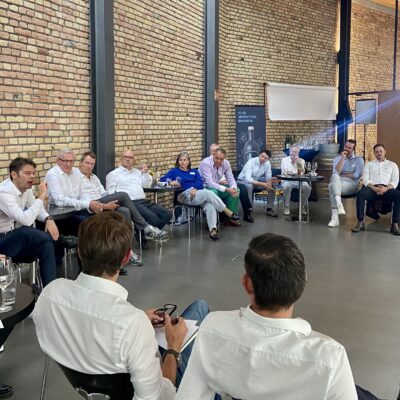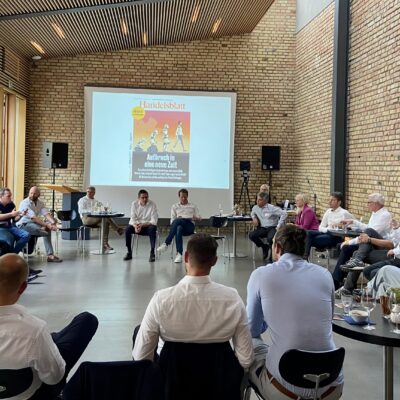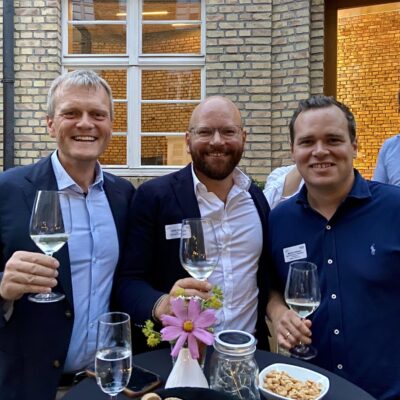How is artificial intelligence changing German industry?
On June 29, 2023, numerous top decision-makers at C-level from the Rhine-Neckar metropolitan region got to the bottom of this exciting and promising question. The exclusive event took place as part of the Handelsblatt’s Off The Record series under the auspices of PTA IT-Beratung at the Alte Postamt in Mannheim.
Numerous leaders and digitalization experts discussed in selected panels how AI is changing German industry, what opportunities and risks are associated with it, but also how the topic affects the responsibility of companies in dealing with AI and how this new technology in all its facets will affect the jobs of tomorrow. Thomas Gottschalk (Head of Digital, BASF Performance Chemicals), Adrian Nowak (COO, IANUS Simulation GmbH), Dr. Robert Thomann (Managing Director, sMArt City Mannheim GmbH) and Dr. Tim Walleyo (Managing Director, PTA GmbH) provided exciting insights into how the next stage of digital transformation can be used strategically.



The influence of AI is increasing and opening up numerous options
In the open dialogue, the participants largely agreed that the use of AI opens up numerous application possibilities, for example in process automation, in the optimization of supply chains or in the field of predictive maintenance; However, the top decision-makers present were convinced that this must be accompanied by a differentiated target image: Progress in the application of artificial intelligence definitely needs clarity. A successful and beneficial use of AI requires a business rationale and a broad base of people who also support the associated changes. On the one hand, the influence of AI on office and support functions is already advanced and is clearly overtaking the relevance of technical processes, at least for the time being. However – as the participants in the Old Post Office also agreed – a solid database is needed in order to make targeted use of the progress made. All too often, it turns out that the use of artificial intelligence is sometimes quite useful and in other cases not at all. However, the path to a comprehensive and reliable digital database, without which AI cannot function, is still a long one, according to the digitization experts and decision-makers in the professional discourse. And companies first need to have the right conditions in place to be able to make this journey quickly.
The AI decision-maker mindset in Germany The AI decision-maker mindset in Germany
In a stylish setting and with selected wine accompaniment, the participants also explored the camps into which decision-makers in German companies can be grouped and how they position themselves with regard to the future topic of AI; There are three camps that predominantly shape the AI mindset in German companies: There are those who believe that AI is not necessary. The second camp is taking a wait-and-see approach and believes that they need to keep an eye on AI, while the third camp is convinced that AI needs to be tackled strategically in order to fully exploit its potential.



Germany does not need its own AI strategy
Although a strategic approach to AI plays a central role, the panel of experts believes that it is not necessary to invest a lot of time and money in developing a dedicated AI strategy; Germany simply does not need such a location, as AI will be a commodity that can be purchased in the future anyway. Instead, German corporate decision-makers need to understand more quickly how they can use AI to increase their value creation and productivity; Those present were quite prepared to place a bet on artificial intelligence. However, companies need to develop a better understanding of how realistic the commercial upside actually is. This is something that is regularly lacking and the scope often changes as a result of the knowledge gained on such a dynamic topic; Small, manageable projects are helpful in this context in order to make decisive progress. After all, AI use cases are far from being business cases. And the top decision-makers at the Old Post Office in Mannheim also agreed on this: companies must show more courage to innovate, even if this increases the risk of a project failing.





